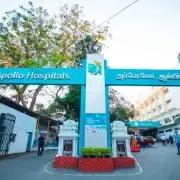Medical tourism : Benefits, Risks & Costs
In This Article
Medical tourism : Benefits, Risks & Costs
Parvathy
Updated on June 12, 2024
Medically verified by Dr. Arya
Fact checked by Sreemoyee

Medical Travel
10 min read
What is medical tourism? What are its merits and demerits?
Karetrip is here to answer these questions for you.
Medical tourism, the activity of traveling to another nation for medical procedures, has expanded substantially over the past ten years.
Individuals seek various procedures, from elective surgeries and dental care to intricate operations and fertility treatments.
This procedure has gained fame due to the potential advantages it provides, but it also comes with innate dangers and expenses.
Wondering what are the merits and demerits of medical tourism in India?
This blog from Karetrip examines these facets in detail. Let’s dive in.
Benefits
- Cost Savings
One of the prime motivations for medical tourism is the capacity for substantial cost savings. Medical procedures in countries such as India, Thailand, and Mexico can be a fraction of the amount compared to the United States, Canada, or Western Europe.
For instance, a heart coronary artery bypass surgery that costs over $100,000 inside the U.S. might be accessible for $10,000 to $20,000 in India.
This cost difference makes high-quality healthcare reachable to those who might otherwise not afford it.
- Access to Advanced Treatments
Few patients tour abroad to get treatments and technologies that are unavailable in their native country. Certain countries specialize in certain procedures or possess advanced clinical technologies and specialize in particular areas.
For example, South Korea is renowned for cosmetic surgical operation, while India and Singapore have become hubs for complicated cardiac and orthopaedic surgeries.
- Shorter Wait Times
In nations with nationalised health care facilities, the wait period for elective surgical procedures can be extensive. With the aid of medical tourism, patients can avoid these delays and receive timely remedy.
This is particularly vital for those wanting urgent care or those who wish to avoid the discomfort and deterioration associated with lengthy waiting periods.
- Integrating Treatment with Travel
Clinical tourism enables clients to mix healthcare with recreation, offering a chance to recuperate in unexplored regions.
Many medical tourism locations are also famous vacation spots, that could make the recuperation process more enjoyable.
Risks
- High Standard Care
One of the most enormous hazards of medical tourism is the likelihood of differing standards of care. Even as many countries flaunt world-class medical facilities, some may not match the standards seen in more developed nations.
Patients might face issues associated with poor hygiene, inferior clinical practices, or unqualified personnel.
- Legal and Moral Issues
Different countries have varying policies and ethical standards regarding medical procedures. Problems can come regarding recipient rights, the enforceability of clinical malpractice claims, and the accessibility of legal recourse.
In some situations, remedies deemed safe and legal in one nation may be banned or considered unethical in another.
- Postoperative Challenges
Postoperative care and follow-up practices are crucial components of successful medical remedy. Patients who travel overseas may encounter problems in receiving appropriate post-surgical care once they return home.
Complications might arise, requiring further medical attention that could be expensive and challenging to arrange from afar.
- Communication Barriers
Language and cultural variations can pose significant challenges.
Miscommunication between patients and healthcare professionals can lead to misunderstandings about treatment methods, consent paperworks, and postoperative care instructions, potentially compromising the quality of care obtained.
- Financial Dangers
Despite the potential for cost savings, medical tourism involves financial risks. Journey costs, accommodation, and unexpected medical costs can accumulate.
Moreover, some insurance companies may not cover procedures performed overseas, leaving patients to take the full monetary burden.
 10 min Read
10 min ReadBooking Budget Friendly Accommodation Near Apollo Hospital, Greams Road
 10 min read
10 min readWhere can I exchange Bangladeshi Taka To Indian Rupees?
 10 min read
10 min readUnique Bangalore: Unusual & Intriguing Places to Explore While Staying In The City For Treatment
Get a Callback Now
Ways to Manage the Risks of Clinical Tourism
- Conduct Thorough Research
Before opting for medical tourism, perform extensive study on the destination country, healthcare providers, and specific medical facilities. Look for accreditation, patient testimonials, and success rates to ensure high-quality care.
- Consult with Medical Experts
Speak your plans with your primary care healthcare professional or a specialist. They can offer precious recommendations, propose reputable facilities, and aid you comprehend the potential risks and benefits.
- Verify Qualifications
Ensure that the doctors and medical staff are duly certified and experienced. Check their credentials, memberships in professional associations, and any available records of their medical practice.
- Comprehend the Legal Panorama
Acquaint yourself with the legal and regulatory framework of the destination country. Understand your rights as a patient, the process for addressing medical malpractice, and the availability of legal recourse.
- Arrange Postoperative Care
Plan for follow-up care and support upon your return home. Discuss postoperative arrangements with your healthcare provider to ensure you have access to necessary medical services in case of complications.
- Consider Insurance Options
Explore insurance policies that cover medical procedures overseas. Some insurers provide plans specially tailored for medical tourism, which can provide financial protection and peace of mind.
- Ensure Clear Communication
Maintain clear communication with healthcare providers, addressing any language barriers. Utilise translation services if necessary to avoid misunderstandings about treatment plans, consent forms, and postoperative care instructions.
- Check Economical Implications
Calculate the whole feed of the medical trip, including travel, accommodation, and any possible unforeseen costs. Ensure you have a comprehensive budget to keep away from unexpected financial burdens.
Costs
- Medical Procedure Costs
The primary expense of medical tourism is the cost of the medical procedure itself. These expenses can vary significantly depending on the type of treatment and the country.
For instance, dental implants in Hungary might cost $1,000 to $2,000 compared to $3,000 to $5,000 in the U.S. Similarly, a hip replacement might cost $7,000 to $15,000 in India versus $30,000 to $50,000 in the U.S.
- Journey and Lodging
Patients must consider the expenses of travel, consisting of flights, visas, and local transportation. Accommodation fees can also be substantial, especially if clients need to stay for prolonged time periods before and after their treatment. Some medical tourism packages include accommodation and local transport, but these still contribute to the overall expense.
- Insurance and Legal Expenses
Patients might need to purchase additional coverage to cover likely complications or emergencies during their trip. Legal charges can come up if there are disputes or problems with the quality of care obtained, necessitating legal consultation or action.
- Additional Medical Costs
Unexpected medical charges can arise, such as problems requiring extra treatment, prolonged hospital stays, or the want for revision surgeries. These unexpected charges can quickly expand, sometimes nullifying the initial savings.
- Opportunity Charges
Patients must additionally think about the opportunity expenses associated with taking time off work and the potential loss of earnings during their medical travel. Recovery time might be probably longer than expected, leading to further monetary implications.
The information provided represents the views and opinions of Karetrip. It is crucial to conduct your own independent research before making any decisions regarding your healthcare journey. - Disclaimer
Medical tourism involves a complex mix of positives, hazards, and expenses.
The attraction of substantial cost savings, access to advanced treatments, reduced wait times, and the option to combine treatment with leisure travel motivates many to seek medical care overseas.
Nevertheless, it is essential for prospective medical tourists to thoroughly investigate and consider the quality of care, legal and ethical standards, postoperative care arrangements, and the complete financial implications.
Careful arrangement and diligent study can help reduce hurdles and ensure a positive medical tourism experience.
Source Links
Universal Medical Travel


